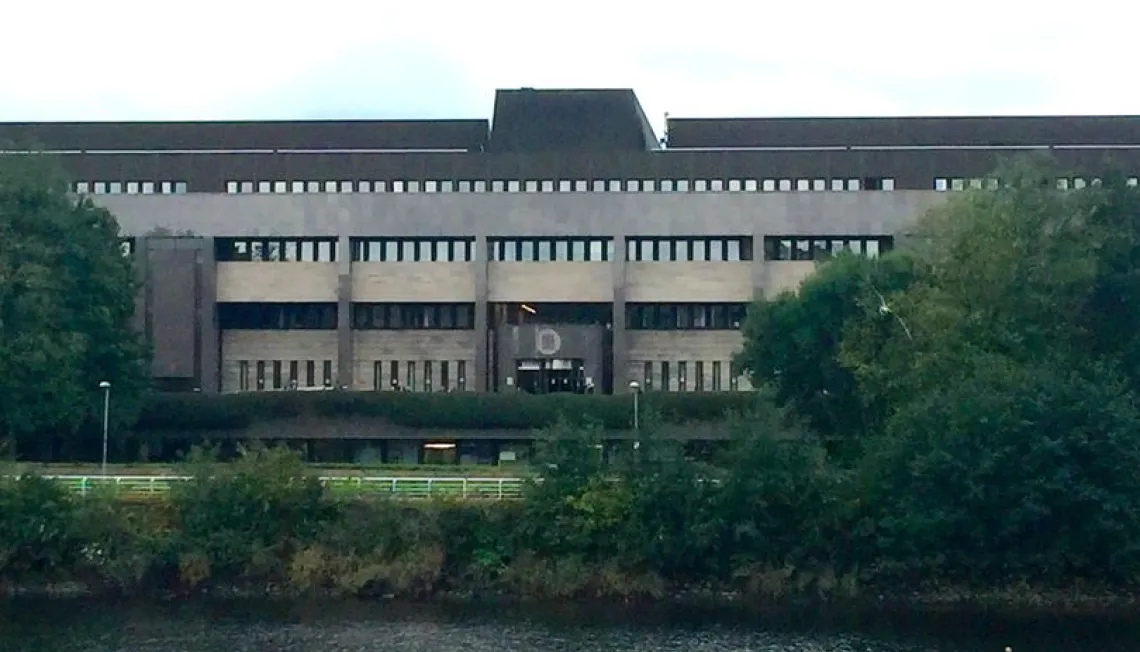We spoke to Sheriff Lindsay Wood about his experiences running the Glasgow Drug Court for nearly 20 years.
Background
Scotland now has a small group of established problem-solving courts tackling issues such as drugs, alcohol, and domestic abuse. The first problem-solving court in Scotland was established in 2001; the Glasgow Drug Court. The aim of this problem-solving approach is to break the cycle of substance misuse and offending and targets repeat offending for those with longstanding substance use issues. Those who are eligible for the programme are given the opportunity to change their lives after years of addiction. Sheriff Lindsay Wood is one of three who preside over the Glasgow Drug Court.
Eligibility
To be eligible for the drug court, individuals must be convicted of an offence that is related to their substance use, and those accepted include both summary and solemn (serious) offences. Defendants are usually referred by other Sheriffs in Glasgow (there are 35 in total) who see the same individuals repeatedly in their courtroom and are trapped in the revolving door of crime and addiction. The assessment process is carried out by the drug court team, which includes a criminal justice social worker (CJSW), drug support worker and a doctor/nurse. The aim is to assess an individual’s potential receptiveness and suitability for a drug court order which is by no means an easy alternative. Motivation is a key factor in the assessment due to the intensive nature of the programme.
The process
If accepted, the Sheriff imposes a Drug Treatment and Testing Order (DTTO) on the offender, with a requirement to agree to engage in drug treatment, regular drug testing, court reviews, and a commitment to change. The DTTO, which lasts for 18 months, allows individuals to receive intensive rehabilitative support in the community. Participants receive counselling and treatment for their addiction, and are subject to drug testing 2/3 times a week. Additional support is also available through local third sector agencies, tailored to the individual’s support needs.
Regular court reviews (every 4 weeks) ensure that the individual is given the opportunity to speak and to be listened to and to engage fully with the Sheriff. Reviews take place in court with all programme participants present. Through these reviews, the Sheriff will highlight examples of good and poor progress. The Sheriff provides praise and encouragement if the person is doing well. This may well be something they have not experienced previously in court. Sheriff Wood believes that such a process can motivate and inspire individuals to do better than they thought they were capable of, and he insists on all participants being respectful and honest during proceedings.
A key feature of the programme which has been praised by those involved is the pre-court hearing meeting in which the Sheriff and the drug court team have an in-depth discussion about each individual due to appear in the afternoon. These multi-agency meetings are considered to be a strength of the Glasgow drug court.
If they successfully complete the DTTO, the individual participates in a graduation ceremony at the court. The Sheriff and individual are given the opportunity to reflect on the progress made and family and other linked professionals can attend. This provides a positive conclusion to the programme. This element was a later addition to the court process, but Sheriff Wood feels it is an integral and powerful component, particularly for the graduates who may have had few formal celebrations in their lives.
Outcomes
A 2006 evaluation noted that the main strengths of the Glasgow Drug Court were ‘the “fast-tracking” of offenders, a trained and dedicated team having regular contact with participants, the system of pre-court review meetings, and consistency and engagement from the bench.' Sheriff Wood estimates that between 60 and 70% of participants graduate from the programme and believes this demonstrates huge success for such a complex cohort with long histories of entrenched substance use and other issues, such as mental illness. There is strong support for the court from stakeholders, and as a result the programme has grown over time, with over 200 offenders currently on the programme.
This case-study was compiled by Suzanne Smith in 2020
